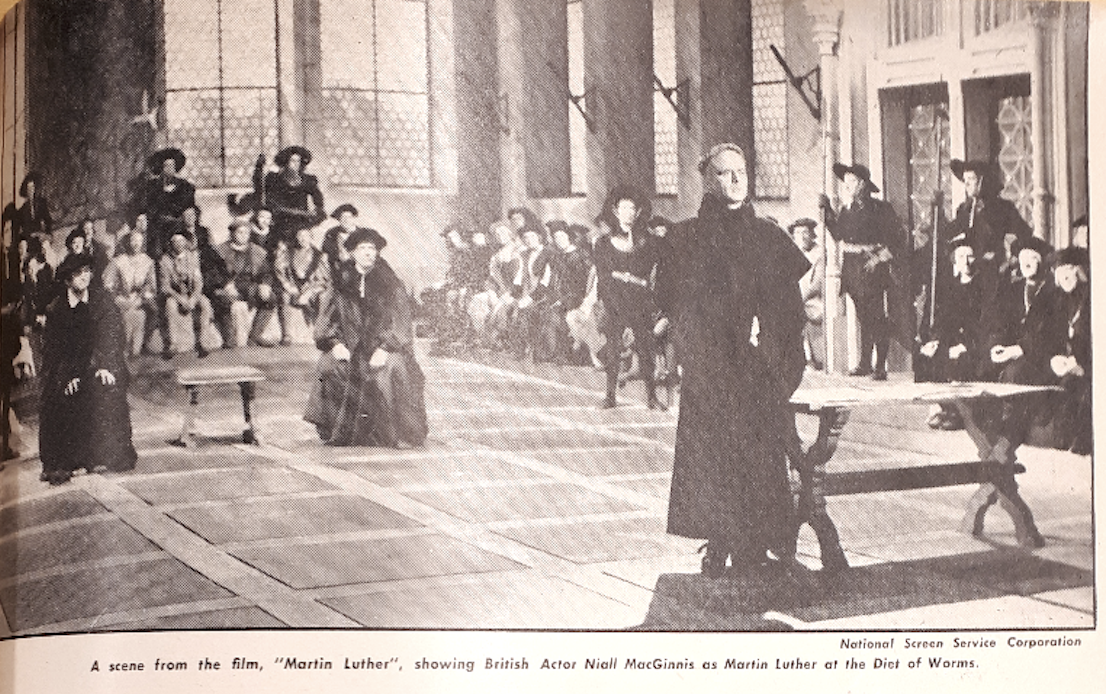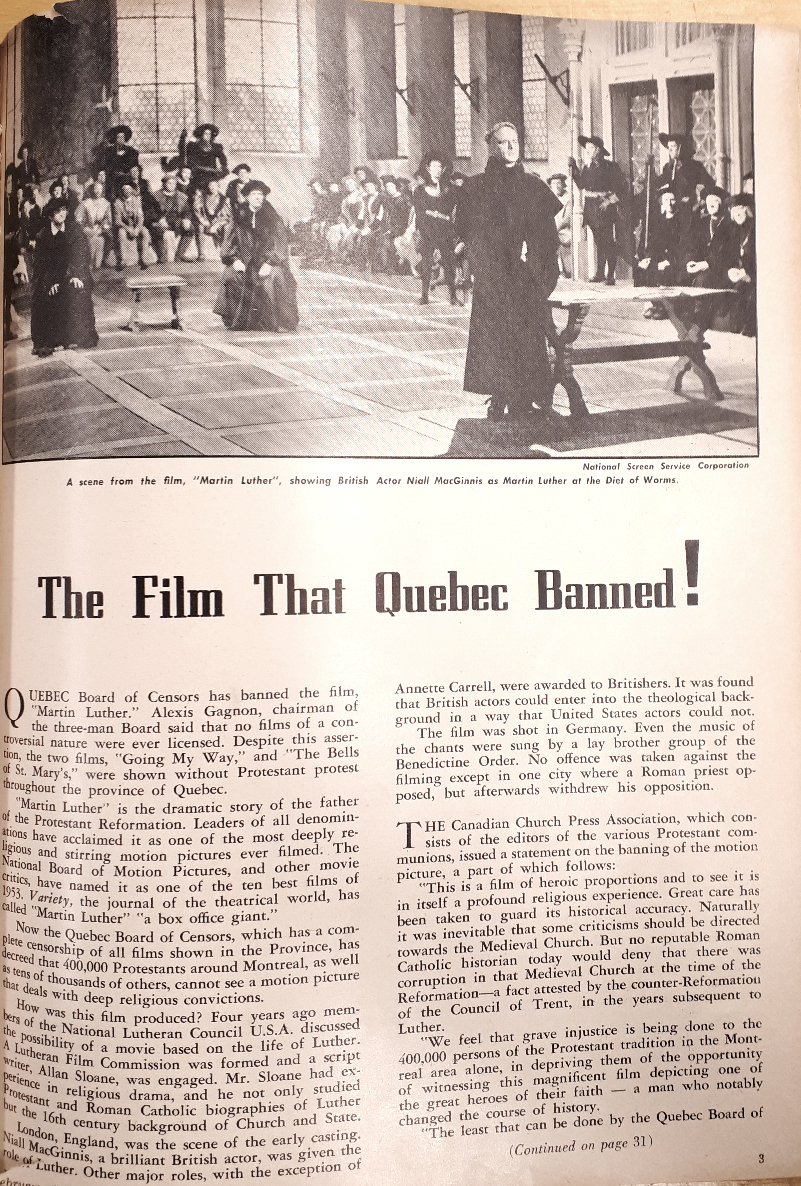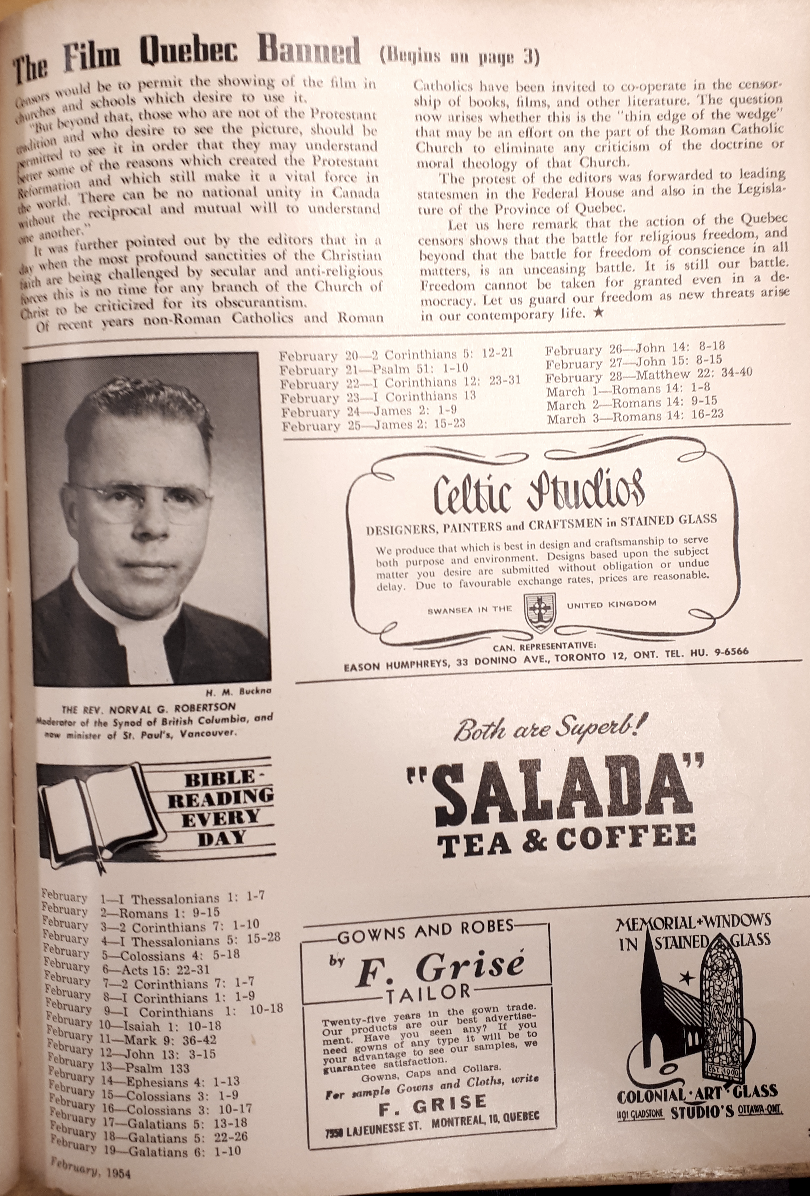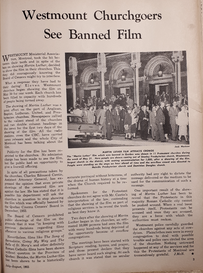|
My blog posts revolve around my interests and vocation as a historian: the intersection of history and contemporary church life, the intersection of history and contemporary politics, serendipitous discoveries in archives or on research trips, publications and research projects, upcoming conferences, and speaking engagements.
I sometimes blog for two other organizations, the Canadian Baptist Historical Society and the Centre for Post-Christendom Studies. The views expressed in these blogs represent the views of the authors, and not necessarily those of any organizations with which they are associated. |
|
I am teaching a class on the Reformation this semester, and to get students into the drama of the period I like to show a brief movie clip of Martin Luther making his iconic “Here I Stand” speech at the Diet of Worms (1521). There were a number of iconic moments in his life but that was probably one of the most poignant, dangerous, and well known. But what few know is that a movie on Luther was banned in theatres in Quebec in the 1950s.[1] I recently stumbled across some articles on that movie banning in an old issue of the Presbyterian Record [see images below]. And what I immediately thought of was how Canada has changed since the 1950s.
But that was then. And this is now. Much has happened in Canada and the Western world that makes it hard for many to fathom the bruhaha over a film about a religious reformer from the sixteenth century.
As I think about such dramatic changes I am reminded of the phrase “the ecumenism of the trenches” attributed to Reformation scholar Timothy George. His point was a simple one; increasingly in the Western world Protestants and Catholics see one another as allies in the struggle for Christianity in a hostile environment rather than glare at one another as enemies locked in mortal combat.[4] And that is a good thing. And another good thing would be seeing Catholics and Protestants sitting in the same theatre watching a Luther movie,[5] sharing their popcorn, and having robust theological discussions over the vital theological issues that arose during the Reformation.[6] [1] https://en.wikipedia.org/wiki/Martin_Luther_(1953_film)#:~:text=The%20film%20failed%20to%20be,seen%20there%20only%20in%20the
[2] Here is a link to a dated but helpful summary of the Council’s statements on the issue: https://scholar.csl.edu/cgi/viewcontent.cgi?article=4551&context=ctm [3] See the following for a very helpful analysis on the collapse: https://www.mqup.ca/leaving-christianity-products-9780773550872.php [4] See the following for discussions of the current and future state of Protestant and Catholic relations: https://www.amazon.ca/Reformation-Over-Evangelical-Contemporary-Catholicism/dp/0801035759; https://www.firstthings.com/article/1994/05/evangelicals-catholics-together-the-christian-mission-in-the-third-millennium. It should not be a surprise to note that not every Protestant, or Catholic, is supportive of a telos of cooperation or mutual recognition. [5] The old black and white classic that caused such a stir in Quebec was Martin Luther (1953). A newer version in colour (!) entitled Luther (2003) is good watch. I suggest two biographies if you want to go deeper into the life of Luther. Roland Bainton, Here I Stand, is scholarly but also very accessible and a riveting read. Heiko Oberman, Luther: Man between God and the Devil is an excellent scholarly work, but very dense and not for the faint of heart. [6] I am not Pollyanna – I do not think the two churches will ever be formally reunited before Christ returns. However, their relationship in the West has been improving, and I hope that telos continues in the coming decades. It should be noted that Catholicism and Protestantism in Latin America and parts of Asia have a much more contentious relationship due to a number of factors, such as syncretism in Catholicism and Protestant inroads into traditionally Catholic parishes.
0 Comments
Leave a Reply. |
Archives
May 2024
|




 RSS Feed
RSS Feed
